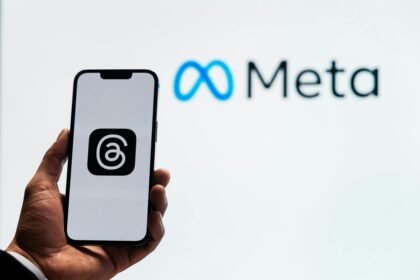During Meta’s Q2 2025 earnings call, CEO Mark Zuckerberg reinforced his strong belief that AI glasses will become the primary interface for artificial intelligence in the near future. Echoing views shared earlier in his “superintelligence”-themed blog post, Zuckerberg told investors that wearable AI, particularly in the form of glasses, will unlock powerful new ways for users to interact with the digital world.
“Glasses are going to be the ideal form factor for AI,” said Zuckerberg. “They allow AI to see and hear what you do, and talk to you in real time.”
Zuckerberg emphasized that adding displays to these glasses, whether through immersive, holographic augmented reality (AR) or subtle, compact screens will further amplify their value. Meta’s next-gen Orion AR glasses, for example, aim to blend rich visuals with intuitive AI interaction, giving users both context and convenience in a wearable form.
“In the future, not having AI glasses or any kind of direct AI interface may leave you at a significant cognitive disadvantage,” he warned.
Meta has already launched several wearable AI products, including the Ray-Ban Meta smart glasses and the newly announced Oakley Meta line. These wearables allow users to take photos, listen to music, and ask Meta AI questions, even about what they’re seeing in real time.
The glasses have been an unexpected commercial success. According to eyewear partner EssilorLuxottica, revenue from Ray-Ban Meta sales more than tripled year-over-year, signaling growing consumer interest in AI-enabled wearables.
Zuckerberg acknowledged the heavy investment poured into Reality Labs, Meta’s AR/VR and AI research division. In Q2 alone, Reality Labs reported a $4.53 billion operating loss, bringing its total losses to nearly $70 billion since 2020. Despite the numbers, Zuckerberg sees the division as a cornerstone of Meta’s long-term AI and Metaverse strategy.
“We’ve been maxing out Reality Labs’ research for the last 5 to 10 years to prepare for this moment,” he said. “It’s all about integrating AI with the physical world.”
While Meta is betting big on glasses, the future of consumer AI devices isn’t set in stone. This year, OpenAI acquired Jony Ive’s AI hardware startup in a $6.5 billion deal, signaling competition in the race to define the next mainstream AI interface. Other companies, including Humane, Limitless, and Friend, have explored alternative wearable form factors like AI pins and pendants, though not all have found success.
Still, Zuckerberg remains confident that glasses offer the most natural blend of social acceptability, functionality, and tech potential.
“Glasses are the ideal way to merge the physical and digital worlds,” he said. “They’re key to realizing the Metaverse, and AI is going to accelerate that future.”







